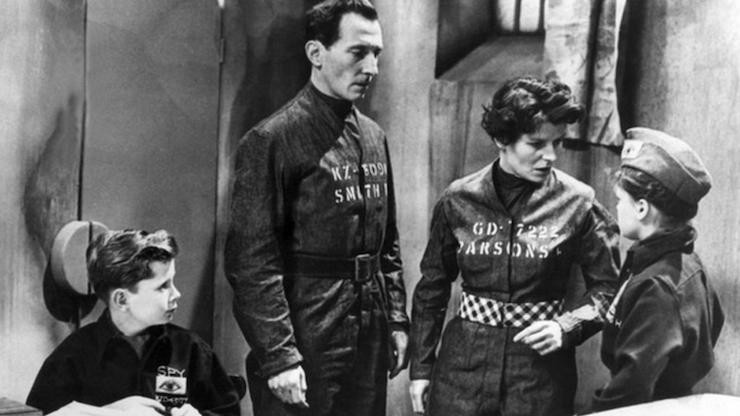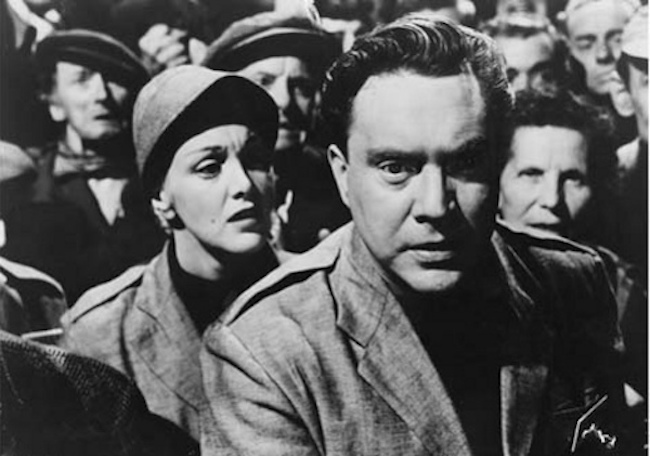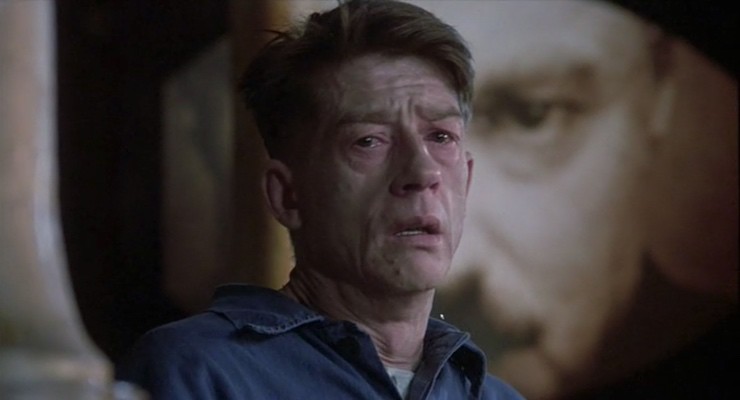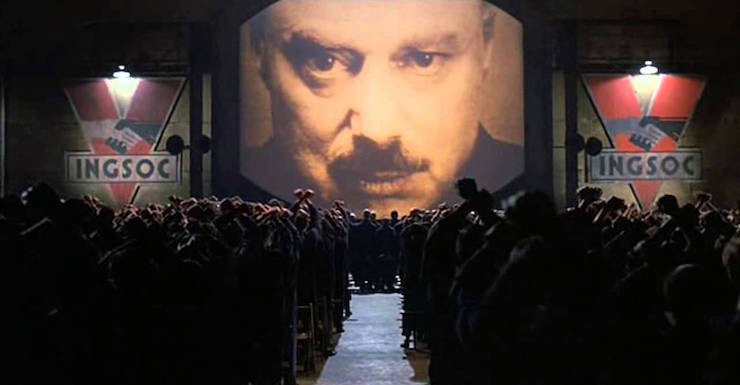“Show, don’t tell”* is perhaps the most effective piece of advice a writer can follow—until it isn’t.
When it comes to the world-building of a science fiction or fantasy story, showing may be the most memorable element, but straightforward telling is the dirty work of prose that introduces the reader to a setting, its history, and its unique set of rules. I like to think of telling as a magic spell the writer casts: highly effective, but only to be used sparingly, at just the right time. Overusing it is draining. Misusing it can render entire sections of a story dead in the reader’s mind.
*Note: By “showing,” we typically mean action, sensory descriptions, and dialogue (usually). By “telling,” we mean exposition, summarization, and explanation (i.e. why someone is doing or feeling something). There are dreadful examples of dialogue that merely tells rather than shows. Writers are wise to avoid that, but it happens sometimes.
My own interpretation of “show, don’t tell” changed dramatically after taking a class taught by the short story writer Pamela Painter. Even some of the most vocal proponents of the rule, she told us, tend to violate it when doing so suits the story. To illustrate this point, Painter had us read an essay by Carol-Lynn Marrazzo titled, “Show and Tell: There’s a Reason It’s Called Storytelling” (anthologized in What If: Writing Exercises for Fiction Writers). In it, Marrazzo quotes Flannery O’Connor, who once observed that “fiction writing is very seldom a matter of saying things; it is a matter of showing things.” But, as Marrazzo gleefully points out, O’Connor’s own story “Good Country People” uses telling not merely to establish the setting, but to render the climactic moment, in which the protagonist Joy experiences a personal transformation after an encounter with a Bible salesman. In the excerpt below, the telling sections are italicized:
She sat staring at him. There was nothing about her face or her round freezing blue eyes to indicate that this had moved her; but she felt as if her heart had stopped and left her mind to pump her blood. She decided that for the first time in her life she was face to face with real innocence. This boy, with an instinct that came from beyond wisdom, had touched the truth about her. When after a minute, she said in a hoarse high voice, “All right,” it was like surrendering to him completely. It was like losing her own life and finding it again, miraculously, in his.
Very gently, he began to roll the slack leg up.
Without the writer’s explanation, there is little to indicate how Joy has changed, and certainly nothing to navigate the nuance of her feelings.

Marrazzo goes on to provide similar examples from writers such as Eudora Welty and James Joyce. But my immediate reaction to her essay was to think of one of the most important moments for me as a reader: the closing scene of George Orwell’s 1984. (And if you need a spoiler alert here, stop whatever it is you’re doing and read 1984 right now.) A quick refresher: the protagonist Winston Smith, after being tortured by the Thought Police of Oceania, sits in a bar by himself, having just finished an awkward, heartbreaking exchange with Julia, a woman with whom he has had an illicit affair. Both Winston and Julia admit to betraying each other to the state in order to avoid further torture, a moment in which they speak as if they are strangers. An announcement begins on the telescreen, declaring a glorious victory for Oceania in its neverending war with Eurasia. Orwell ends the novel with two powerful paragraphs—one that consists entirely of showing, the other that is almost entirely telling. Again, the telling passages are italicized:
The voice from the telescreen was still pouring forth its tale of prisoners and booty and slaughter, but the shouting outside had died down a little. The waiters were turning back to their work. One of them approached with the gin bottle. Winston, sitting in a blissful dream, paid no attention as his glass was filled up. He was not running or cheering any longer. He was back in the Ministry of Love, with everything forgiven, his soul white as snow. He was in the public dock, confessing everything, implicating everybody. He was walking down the white-tiled corridor, with the feeling of walking in sunlight, and an armed guard at his back. The long-hoped-for bullet was entering his brain.
He gazed up at the enormous face. Forty years it had taken him to learn what kind of smile was hidden beneath the dark mustache. O cruel, needless misunderstanding! O stubborn, self-willed exile from the loving breast! Two gin-scented tears trickled down the sides of his nose. But it was all right, everything was all right, the struggle was finished. He had won the victory over himself. He loved Big Brother.
I suppose Orwell could have left out the flowery, almost Biblical language here, and instead kept this as a stark image of a sad, broken man getting drunk by himself. And certainly, that would have been a powerful scene, full of despair and regret. But we would have lost so much. And we’d be debating endlessly over how badly Big Brother has defeated Winston, and how polluted his mind has become with “doublethink” propaganda. Orwell’s moment of telling leaves no room for doubt, or hope: the totalitarian system has pulverized yet another innocent person, and Winston’s romantic notions of love and freedom are not enough to save him.

This ending has posed a challenge to the filmmakers who have attempted to adapt Orwell’s work to the screen. There have been three major versions so far: a BBC broadcast from 1954, starring Peter Cushing; a 1956 theatrical release with Edmond O’Brien; and a criminally underappreciated gem from 1984 starring John Hurt. The question that vexed all three films: how to render this final scene, in which a person sinks into a despair so deep that it brings about a fleeting moment of euphoria. The principle of “show, don’t tell” is pushed to its limit in film adaptation. On the screen, everything must be shown somehow, while even minor moments of telling—such as information dumps, monologues, or “on the nose” dialogue—can bog down the action and even come across as condescending.
The BBC version attempts to solve this problem with a straight voice-over—an odd choice, given that we hear Winston’s thoughts only one other time in the film, and even then it lasts for just a few seconds. Here, the camera closes in on Cushing’s thin face as we listen to his voice: “Love. Suddenly, so suddenly. My victory. Love, love. I love…Big Brother.” Then the camera fades out.
The production values for the 1956 version allowed the filmmakers to be a little more creative. In this ending, the announcement of Big Brother’s victory interrupts Winston and Julia’s reunion. Though Julia seems to be on the verge of telling Winston she still has feelings for him, Winston shushes her so he can hear. He leaves her side to cheer with the crowd. But when he returns, Julia is gone. Undeterred, Winston’s chant of “Long live Big Brother” becomes even heartier. In his excitement, he forces his way to the front of the crowd to declare his devotion to the cause. In this version, Winston’s rejection of Julia is directly linked to his loss of humanity. The scene reminded me a little of The Godfather, Part II, when Michael slams the door in his wife’s face, shutting off his last chance to be a normal person.
The John Hurt version is the most ambiguous. Much like the book, Winston sips his gin while the announcement declares a great victory on the African front. But this time, despite being moved to tears by the “wonderful news,” his voiceover says, simply, “I love you,” which could be interpreted as directed at Julia. Even more interesting, Winston writes the equation “2 + 2 =” in the dust on his table, leaving the solution blank. (In contrast, the book shows him writing the number 5 at the end, a product of his “doublethink” brainwashing at the hands of the Thought Police.) Though defeated, Winston displays a glimmer of stubborn independence, suggesting that he refuses to believe that two and two equals five simply because Big Brother says it does.

An updated film version has been rumored for years, and I am certainly not the first to point out how appropriate a new adaptation would be in the age of constant surveillance, endless war, fanatical superstition, and post-factual politics. I am curious as to how filmmakers will choose to show this moment of pure telling—I would not be surprised if future adaptations jettisoned the ending entirely, opting for something that moves faster and forces Winston to act rather than surrender. Though such an approach could offer a fresh take on the story, one can only hope that it would not go as far as the infamous 1995 adaptation of The Scarlet Letter, in which the deus ex machina of a battle scene(!) resolves the plot (I’m not kidding). Orwell’s work has been subjected to this kind of radical revision before: the 1999 adaptation of Animal Farm closes on a happy note, no doubt meant to address the fall of communism in Europe that the author did not live to see.
Regardless of when and how it comes about, a new film version of 1984 will be either shackled by Orwell’s beautiful moment of telling, or it will be liberated by it, free to interpret the passage in a unique and daring way that captures the heart of the story. The handy rule of “show, don’t tell” will still be there—mainly so that clever storytellers can figure out a way around it. How’s that for doublethink?
Robert Repino (@Repino1) grew up in Drexel Hill, Pennsylvania. After serving in the Peace Corps in Grenada, he earned an MFA in Creative Writing at Emerson College. He is the author of Mort(e) (Soho Press, 2015), Leap High Yahoo (Amazon Kindle Singles, 2015), Culdesac (Soho Press, forthcoming), and D’Arc (Soho Press, forthcoming). He works as an editor for Oxford University Press and has taught for the Gotham Writers Workshop.











One note, it’s possible the missing 5 in 2+2=5 wasn’t an intentional choice on the part of the filmmakers, they might have simply been faithfully adapting an error in the book’s text:
My copy of the book has this (published in the 90s, which does include the 5) in a little section called “A Note On The Text.”
On second thought, maybe I should rewrite that… too much telling.
@ghostly1 That is really interesting. Your comments (and their dramatic rendition) make me want to find out if the filmmakers knew about this typo you mention. (I tried to keep my interpretation as loose as possible just in case something like this came up.)
I think the thing with “Show, Don’t Tell” isn’t that you never should, but that you SHOULD show things that should be shown, and tell the rest.
In the first example the telling is fine: if a character has an epiphany, how else would we know? It has to be told. The only way to “show” it would be the character running around shouting it, and that falls directly under the “bad” form of telling where it’s telling-disguised-as-showing.
Storytelling is a delicate balance of the two, but I think the phrase “Show, don’t tell” gets misused. It’s not that you should NEVER tell. Usually the phrase is most applicable when concerning characterization. Too often authors “tell” us their characters’ traits and motivations, while never having them “show” it or act upon it. This is an common trap to fall into, because it’s very easy to describe a character as rough and tumble, while forgetting to actually show them getting into fights or being stubborn or relentless. It’s easy to tell us a woman is smart and competent, while also forgetting to show her outmaneuvering political enemies or solving actual problems.
Not to get too far away from Orwell, but Roberto Bolano broke the “show, don’t tell” rule throughout his novel 2666 and it remains one of the most brilliant works of fiction I have ever read.
If we’re talking about Nineteen Eighty-Four and “show vs. tell”, then it’s worth noting that this
is definitely not the last paragraph of the novel. There are still several pages to go: Orwell’s “Appendix on the Principles of Newspeak”, which he insisted to his American publisher could not be left out of the US edition (contrast Tolkien’s appendices, which the author thought were valuable but not essential). They’re part of the novel too; they’re written in an academic, dispassionate style, as though by a historian in the early 21st century; and they imply very strongly that Ingsoc eventually falls. Not least because they’re written in Oldspeak! It’s a great example of telling a story through infodump, and it’s done so subtly that most readers miss it completely.
I think ‘Show, Don’t Tell’ means different things depending on the medium. In film, it’s best to convey what’s going on in a character’s head by how he reacts to his environment – a child crying, a car back-firing etc – rather than have him spelling out his motivations in a monologue. This isn’t applicable in writing, as a character’s POV is a critical part of telling any story. Very few books entirely avoid it. ‘The Maltese Falcon’ is the only one that springs to mind right now.
@7 Aonghus Fallon: I’m glad somebody brought that up–just one of the many issues that comes up with translating books to film. “Telling” works a lot better in a text-based medium. I kind of feel like there are a few people working in film today who should have been writers instead, because they keep forgetting that film is a visual medium.
@1 & 2 ghostly1: You, sir, are awesome.
Absolutely. I’d imagine it’s the biggest problem confronting any scriptwriter. There’s nothing inherently wrong with the two examples Robin cites as works of literature, but conveying the same information cinematically (given that you don’t have access to a POV) is a big challenge.
Sorry – Robert!
The remake happened. It was called Equilibrium.
The Shakespeare Theater company in DC recently did a production of 1984. One factor they reminded me is that this is a diary or book written 50 years after the events portrayed. So its never quite clear whether its a 100% reliable narrative.
Is there really a clear dichotomy between Showing and Telling in writing? When an author “shows” the reader something, what he actually does is write words that tell the reader what that thing looks like. On the other hand, in the above excerpts, when the author tells you about the central character, they do it by showing you what the inside of that characters mind looks like.
So are they Showing, or Telling?
Well, it’s certainly an inexact science! There’s definitely an overlap re cinema and literature in terms of inhabiting the moment, but most books use a spectrum of narrative voices – ie, remote from the action to trying to convey the heat of the moment. The term I usually hear used is ‘Psychic Distance’, although I’m not sure what exactly this is. My impression is that it’s broadly analogous to a camera – you’ve got your master shot, your mid-shot and your close-up. By extension, sometimes you need a master-shot and sometimes you need a close up. One isn’t intrinsically ‘better’ than the other.
And I hear you about the samples given above. Initially one could argue that the author has to ‘tell’ us what is going on in the mc’s head, as – given it is interior – by it’s very nature, it can’t be ‘shown’. However, I would reckon this is a matter of context. I would say that – when it comes to a character’s behaviour, specifically their interior monologue – ‘showing’ in a literary sense is when we directly experience the mc’s state of mind but are aware of the subtext (ie, what has happened to the character, what led to his current state of mind, whether he is denial, trying to rationalise his behaviour, yada, yada) whereas ‘telling’ is when the author baldly outlines the character’s motives for thinking the way he does.
So – ‘He gazed up at the enormous face. Forty years it had taken him to learn what kind of smile was hidden beneath the dark mustache. O cruel, needless misunderstanding! O stubborn, self-willed exile from the loving breast! Two gin-scented tears trickled down the sides of his nose. But it was all right, everything was all right, the struggle was finished. He had won the victory over himself. He loved Big Brother.’
– would be showing (at least in my book) whereas –
‘Despite being a product of a police state, the little man had always had ambivalent feelings about Big Brother. He had wondered what Big Brother was really like. Now he was relieved. Relieved that this was no longer the case, but sad that it had taken him so long to resolve this particular issue.’
– would be telling.